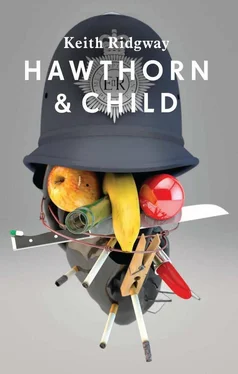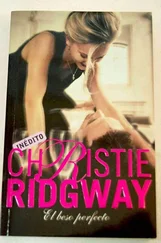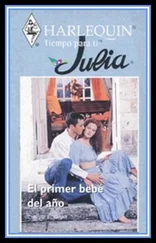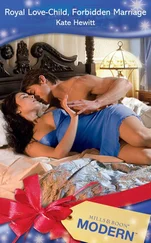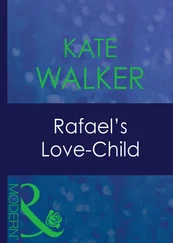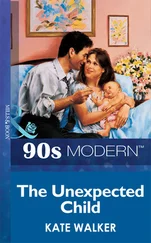— Who told you that?
— Let me finish.
— I care about money.
— I know you do. Through me. I am your carer. Of money. I’m not your carer. God.
He guffawed unpleasantly.
— I care about the money for you. But my point is that great literature has been a staple of our culture for six hundred years, nine hundred, whatever. It’s not going to disappear because some arsehole has worked out how to turn a fat profit on the autobiographies of other arseholes. Who can barely manage to write their name with their own shit.
He took a gulp of his wine. Stanley’s grip on metaphor is all wrong, like a boxer handed a tennis racket.
— The market’s top heavy, ridiculous. Either you’re a hit or you’re nowhere.
— I’m nowhere.
— You are building a back list of quality, Clive. Reviews, translations, respect. All you need is for the climate to change — even a little. And … or … to have a bit of luck with the next one. Or the one after that. Something that catches the bastards’ attention. That’s all it takes. A spark. Then you’re in the window. You’re on the shelves in numbers. You’ve got your public.
He nodded, pleased with his reasoning, and waved his cutlery at me.
— Then your career will catch up with your talent. You’re too good a writer to be doing well now. You can’t write badly — that’s your problem.
I looked at him incredulously.
— Of course I can write badly.
— There isn’t a paragraph of bad writing in any of the four novels for which I am your humble agent and representative.
— Don’t talk crap Stanley.
— You’re too hard on yourself.
— And anyway, I resent the suggestion that I can’t write badly. It sounds like a deficiency.
He laughed, but I didn’t. I should be able to write anything I want, at will. In any way I want. A writer who can’t write badly is not really a writer at all. Writing is a performance. A actor who cannot affect a limp or an American accent is not much of an actor. I tried to explain this to Clive, but it distracted him into film talk. There was once a option sold on one of my books. It expired. I asked him had he ever heard back from them. He had not.
I filled our glasses, restoring ostensible parity. But I had drunk much more. Through the window the street was dry and busy. The threat of rain was empty and people walked normally in all directions, in great numbers. No one seemed to care about anything very much at all.
— Would you get a job? Stanley said.
— What?
— Something to tide you over.
— Tide?
— Tide you over. See you through.
— Until when?
— Until you finish the new thing.
— I don’t know how to get a job. I haven’t had a proper job in ten years. I’m a writer. What are you talking about? What kind of job?
— Don’t panic, he said. Teach? Creative writing.
— I couldn’t do that.
— Yes you could. It’s such a lot of bollocks. Fewer commas, more full stops is what it amounts to Clive. God help us. As if we didn’t have enough shit awful writers. You could join the industry that creates shit awful writers of shorter sentences.
— I can’t, Stanley. You’ve … it’s … Anyway, I’m not a fucking teacher I’m a writer. And too talented to make a living, apparently.
Stanley stared a me seriously.
— You’re depressed, he announced. Tell me about Rosemary.
I told him about Rosemary. We got a second bottle.
I had no money.
I was a writer.
Lunch with Stanley left me depressed but proud. Stubbornly determined that there should be a way to write my way out of trouble. Despair and hubris are close on the ratchet. They blend, somewhere, in the little black murmurs of the mind.
It’s honest, isn’t it? This is what my despair declared to me. It is honest and admirable. I have one skill, and one skill only, so that skill is what I will use. A writer writes. If I find myself on a desert island, lost to civilization, just give me a sharp stone and a flat rock, and I will write civilization into existence for I am a writer and there is nothing that I cannot create. Nothing. The world is a written thing, humanity a story, life a plot. There you have it. Life is a plot.
I decided to write a bestseller.
Why not? Why not apply my skill to writing badly? Or if not badly then at least simply, easily, clearly and quickly — making up for in mechanics what I neglected in character, style, depth, thought? Entertain the fuckers. Popularity is not a mark of poor quality for god’s sake. Not at all.
I would write under a pseudonym.
It was a grim sort of business at first, as if I had undertaken something unpleasant. A tax return. I looked at the current bestsellers. I examined the bestseller lists. I went to my local chain bookshop and noted what was taking up space in the windows and on the display tables. Which titles were so heavily stocked and discounted that buying one of them felt casual — something you should give no more thought to than buying a ready meal. In my notebook I wrote down the sorts of books they were. Memoirs. Thrillers. Fantasies. I wrote down some titles and some plot details. There seemed to be so many. Titles I mean. Not plots.
It was out of despair that it started. But I became, gradually, as I applied myself to the task, more positive. Even, at times, enthusiastic. This was a project I could proceed with methodically. It was practical, measurable. I could use index cards and cork boards and diagrams. I could structure my plot like an architect designs a house. A small, functional, unlovely house, but a house nonetheless. My enthusiasm excited me.
But it started in despair. Why should anyone be surprised about where it ends?
I steeled myself. I adopted cynicism. I did my best to dampen the excitement. Stay cynical, stay in control.
Not a children’s book, and not fantasy. I could not be that cynical. I have no feeling for either genre, and no aptitude for the brazen sort of manipulation it would take to fake it. Which is too bad.
Memoir, perhaps. My own name, my Staffordshire childhood, Cambridge, the years in Mexico and Peru, the accident, the affair, my disastrous marriage. But I knew that it didn’t amount to very much. And so it would turn to fiction, and I would be back where I had already been, forging pointless middle-class dramas out of self-importance and idleness.
A thriller, then. A thriller. Death in the best sense. I would take my depressive tendency and use it as a weapon. A dark foreboding thriller in which death comes and tickles us, and sets us a puzzle and lets us escape. It would need to be sharp, succinct; an irresistible one page pitch — and perhaps two or three sample chapters — and I would need to get it to Stanley as quickly as I could. Then he could do his thing. Sell it. To the highest bidder. Sell the film rights. Sell the serial rights. Sell. Sell. Sell.
The poplar tree swayed and shattered the setting sun, and the black clouds marched westwards, and the air was brittle, ready for anything. From below there was music, a compressed ticking and click, like a cartoon bomb in a matchbox, while over my head footsteps sounded in short inscrutable patterns, like chess moves, expressions of thought, punctuation, a code.
I made notes. I thought about death. I thought about deception and hiding and method. But I was distracted by the end result. I wrote out lists of potential pseudonyms for myself. Lists of possible names for my hero. I thought about Rosemary. She has a friend — Mandy or Melinda or something — whose partner is a Metropolitan police officer called Child. The name had stayed with me, though I’d never met him. It could be arranged, I supposed. At some stage I would need access to the lexicon and procedures of the murder squad. Or whatever they’re called.
Читать дальше
